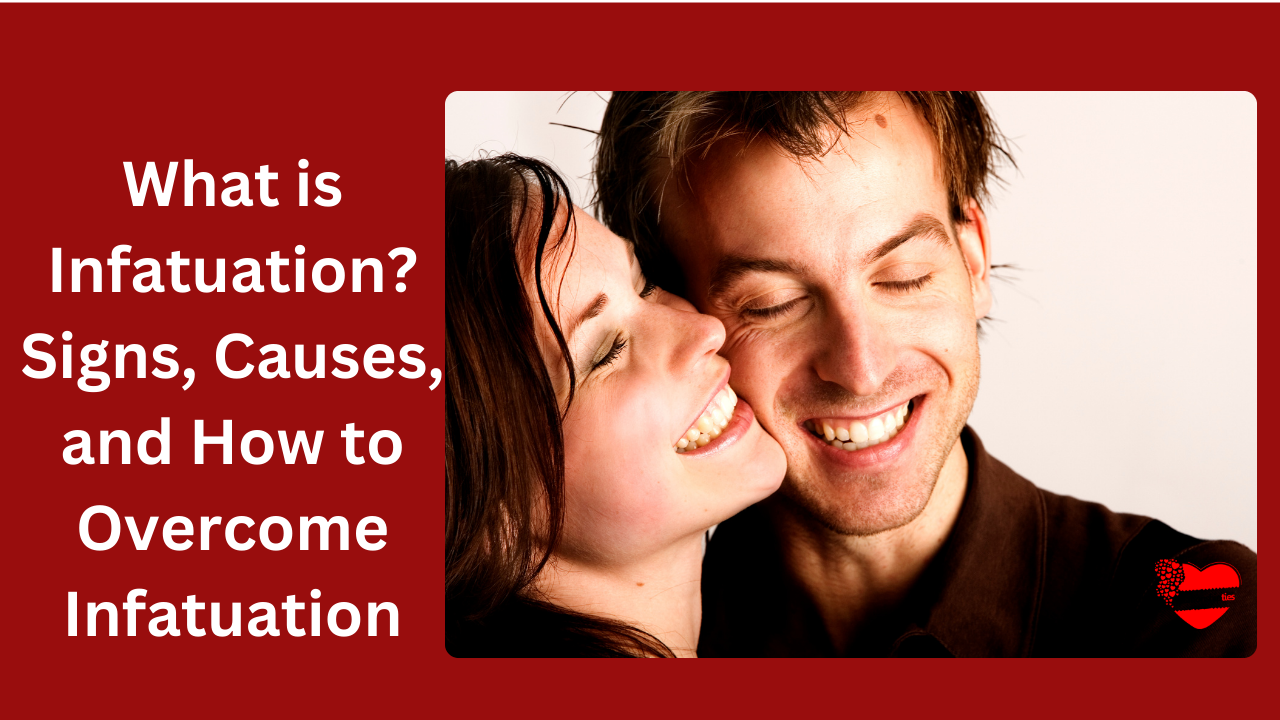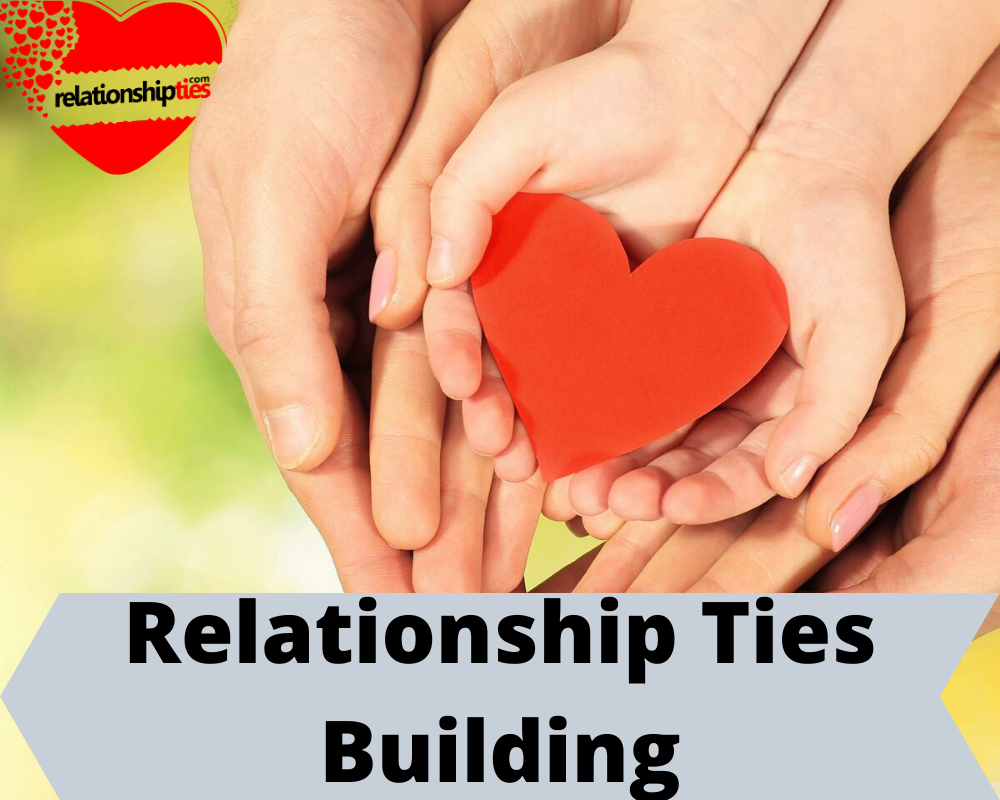What is Infatuation? Signs, Causes, and How to Overcome Infatuation in a Relationship
Often confused for love, infatuation can engulf our hearts and minds in a flurry of feelings. The overpowering emotion takes over our thinking, clouds our judgment, and makes someone seem nearly legendary. To us, we think we are deeply in love.
However, precisely what is infatuation? What distinguishes it from true love or attraction? More importantly, how can we escape its addictive hold?
This article will examine the subtleties of infatuation, including its symptoms and causes, and offer insightful advice on overcoming its intense attraction.
Table of contents
What is Infatuation?
Infatuation is an acute, transient sensation of intense attraction to someone. It is typified by an intense desire frequently motivated by physical attraction or romanticized ideas of the individual.
When you’re infatuated, you may experience an overwhelming surge of emotions, including excitement, longing, and perhaps obsession, as your thoughts are all focused on the individual.
It is typically less grounded in a profound emotional bond or comprehension of the person’s nature and more following fantasy and idealization.
Although intense and thrilling, infatuation is frequently transient and may not lead to a long-term, committed commitment.
It’s usually characterized by strong feelings and an idealized perception of the individual, which can occasionally cause someone to become blind to their complexity or shortcomings.
In contrast to true love, characterized by a more profound emotional bond, comprehension, and acceptance of the other person, infatuation is typically more concentrated on the rush of the first attraction. It can pass when the first exhilaration wears off or reality sets in.
Read Also: How to Cope with Depression After Breakup
What are the Causes of Infatuation?
Several things can lead to infatuation:
Physical Attraction
Feelings of infatuation can be sparked by a strong physical attraction or connection with someone. Charm, charisma, or physical attractiveness may be important factors in causing these strong feelings to arise.
Novelty and Excitement:
Exciting and novel experiences have the power to captivate people. Attraction can be heightened by the excitement of meeting someone new, finding shared interests, or doing something unknown.
Idealization and Fantasies
Constructing an idealized mental image of the other person and emphasizing their good qualities while ignoring any possible negative aspects might lead to infatuation. Idealization frequently results from a limited comprehension of the actual nature of the person.
Chemical Shifts
Infatuation may accompany physiological changes such as elevated dopamine and adrenaline levels. These brain chemicals play a part in the joy, excitement, and exhilaration of falling in love.
Projecting Demands and Desires:
Infatuation can result when people project their demands, wants, or unfulfilled emotional requirements onto others. This projection can establish a deep emotional bond when personal fantasies or aspirations are realized.
Lack of Real Understanding
Early in a relationship, infatuation frequently happens when there is little awareness of the other person’s complexity, weaknesses, or genuine nature. It is more predicated on cursory encounters and first impressions.
Read Also: Reasons You Should Fall out of Love Fast
What Are the Signs of Infatuation?
The following indications could point to infatuation:
Thoughts About Them All the Time: You think about the person all the time, almost compulsively, sometimes to the point where they take up all of your thoughts.
Idealization: You tend to idealize the other person, focusing exclusively on their great qualities and disregarding potential defects or shortfalls. It’s possible that this idealized representation doesn’t reflect the real person.
Emotional Intensity: Your feelings for the person are strong and overwhelming. Extreme highs and lows may occur depending on how you engage with or think about them.
Physical Attraction: A strong physical attraction is a common sign of infatuation. You are attracted to someone’s looks, and your attraction has a strong physical component.
Brief Duration: The duration of infatuation is usually brief. It is passionate and intense initially, but as soon as the novelty wears off or you learn more about the individual, it may not last as long.
Lack of True Connection: Although infatuation may seem powerful, a strong emotional or intellectual bond is frequently absent.
Rather than being grounded in a true understanding of the individual, it is predicated on idealization and superficial appeal.
Impulsive behavior: Due to your infatuation, you may act impulsively and make snap decisions or changes in behavior to get closer to the individual.
Read ALSO: What is Love? | 25 Facts About Love That is Heart Melting
How Do I Overcome Infatuation and Go On
A strong emotion that can take over our thoughts and feelings is infatuation. Infatuation may be thrilling and overwhelming, whether a crush on someone we don’t know or a strong bond with a buddy.
But it’s crucial to understand that infatuation is not the same as love and frequently results in heartache and disappointment.
Let’s discuss how to overcome infatuation and move on with your life.
1. Recognize and Accept Your Emotions
Understanding and accepting your emotions is the first step towards overcoming an infatuation. It’s common to feel a wide range of emotions when infatuated.
Still, it’s important to realize that these sensations are fleeting and not grounded in a true understanding or connection with the other person. So, to help yourself, it’s fine if you fall out of love.
Consider your feelings momentarily and acknowledge that they might influence your decision-making. While you should accept and embrace your infatuation, remember that it is not a strong basis for a long-term, healthy relationship.
2. Take a Step Back
Taking a step back to think about overcoming infatuation requires putting some distance between you and the person you are infatuated with.
This could include avoiding places where you are likely to see them, breaking off communication temporarily, or simply restricting contact.
You allow yourself to focus on your well-being and acquire perspective when you make room for yourself. It will enable you to refocus your energy on other areas of your life and interrupt the pattern of thinking about the other person all the time.
3. Pay Attention to Yourself
We frequently disregard our own needs and goals when we are infatuated. Use this opportunity to concentrate on improving yourself rather than becoming fixated on someone else.
Enjoy joyful activities, explore interests and hobbies, and make personal development investments.
You may build a sense of independence and self-worth and improve your self-esteem by focusing your energies on yourself.
As a result, you can escape the clutches of infatuation and cultivate a more positive outlook on relationships.
4. Look for Assistance
One of the ways how to overcome infatuation love is by seeking assistance.
Getting over an infatuation can be difficult, so asking friends, family, or a professional for help is important. Speaking with a trusted person about your emotions can help you see things more clearly and from a different angle.
A support network can also provide direction, inspiration, and comfort throughout this emotional process. They can serve as a helpful reminder of your value and keep your attention on your health.
5. Have Reasonable Expectations
Idealizing and elevating the other person to a pedestal frequently results in infatuation. Recognizing that nobody is flawless and having reasonable expectations is critical.
Remember that everyone is flawed and that compromise, mutual respect, and understanding are necessary for a healthy and dynamic relationship.
You can avoid being unduly connected to an idealized version of the other person by establishing reasonable expectations.
This enables you to see them more impartially and base your conclusions on a comprehensive knowledge of their true nature.
6. Take Time for Yourself
It takes time to recover from infatuation, so it’s critical to have patience with yourself. Recognize that your sensations will eventually subside and that you will progressively regain control over your thoughts and emotions.
Be gentle to yourself and take care of yourself during this time. Take part in joyful activities, meditate or practice mindfulness, and surround yourself with supportive people.
Remember that emotional liberation is a journey you can reach with each step toward letting go of infatuation.
FAQs on How to Overcome Infatuation
Infatuation is an intense but short-lived feeling of romantic attraction and obsession with another person.
Signs of infatuation include idealizing the other person, intense longing to be with them, and difficulty thinking about anything else.
Infatuation can be caused by physical attraction, perceived similarities, or a need for validation and attention.
Infatuation typically lasts from a few weeks to a few months before fading or developing deeper feelings.
Bottom Line
Though it might be an emotional rollercoaster, infatuation is not a strong basis for a long-term, healthy relationship. You can overcome infatuation and move on with your life by admitting and recognizing your feelings, putting some distance between you and them, concentrating on improving yourself, getting assistance, having reasonable expectations, and giving yourself time.
Related Articles
- What Is a Low Key Relationship? Reasons, Signs and Benefits
- Tie the Knot: 25 Things You Should Know Before Tying the Knot
- SexFriend: What is Having Sex with Your Best friend Like?
- Friends with Benefits Meaning in Relationship| Is it Right for Me
- How Do You Know if Your Friends Are Haters? 17 Signs of a Secret Hater
- Can You Be Friends With Your Ex?
- 15 Reasons Why Not To Have No Friends






